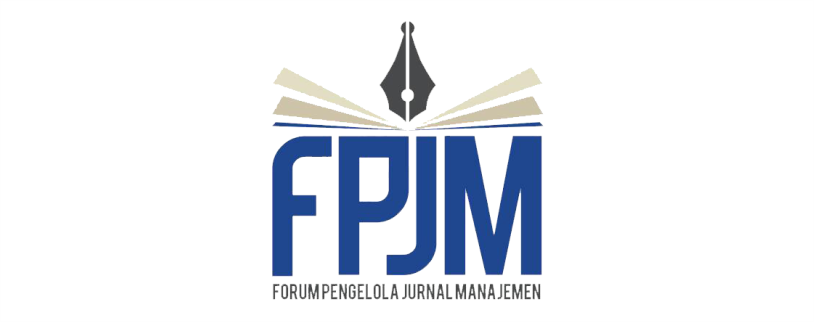Model Pengembangan Kreativitas dan Inovasi dalam Membentuk Entrepreneur di Era Ekonomi Digital
DOI:
https://doi.org/10.26905/jmdk.v7i1.2548Keywords:
Creative, Digital Economy, Entrepreneurship, Innovation, Training ModelAbstract
This study aims to develop a model of creativity and innovation in building the entrepreneurial spirit. The population are 145 young people from the study group in Anyer District, Serang Regency. The location selection is based on the fact that young people in that area are more interested in working on the Cilegon industrial area than become entrepreneurs, while business opportunities in the digital economy era are wide open to the younger generation. The research data is collected by giving tests, questionnaires, guidelines, observations, interviews and documentation studies. The data is analyzed using descriptive analysis, percentage, with non-parameter statistics with Microsoft Excel, and SPSS 19. The results of this study show that: 1) model planning is ready to be carried out based on theory and empirical research results in field of entrepreneurship courses in structured concept;. 2) the process of applying this model is carried out in community learning groups through three stages: introductory material, model development, and model testing; 3) the model that encourages the development of creativity and entrepreneurial innovation towards community learning groups is a training model oriented to build the entrepreneurial spirit in the digital economic era; 4) This training model enables the creation of entrepreneurial institutions in the digital economic era that require more creativity and innovation.
https://doi.org/10.26905/jmdk.v7i1.2548
Downloads
References
Alberti, Fernando; Salvatore Sciacia, dan Alberto Poli, 2004, Enterpreneurship Education; Notes on and Ongoing Debate, 14th Annual int. Ent. Conference, University of Napoli Federico II (Italy) 4-7 Juli 2004.
Alma, Buchari, 2003. Kewirausahaan. Bandung: Alfabeta.
Ardichvili, Alexander, Richard Cardozo, dan Sourav Ray, 2003: A Theory of Enterpreneurial Opportunity Identification and Development, Journal of Business Venturing, Vol. 18 pp. 105-123
Anton-Nb.com. (2020). Anton-Nb.com. [online] Available at: https://www.anton-nb.com [Accessed 12 Jan. 2020].
Brouwer, Maria T., 2002 Weber, Schumpeter, and Knight on Enterpreneurship and Economic Development, Journal of Evolutionary economics, Springer, Verlag, Vol. 12, 2002, pp 83-105
Dikti. Depdiknas, 2008, Materi TOT Soft Skill, Hotel Pangrangon Bogor tanggal 29-30 November 2006.
Disman, 2004, Efektivitas Pendidikan Ekonomi dalam Pembentukan nilai-nilai Perilaku Ekonomi (studi tentang faktor-faktor yang Mempengaruhi Efektifitas Pembelajaran Ekonomi dan Implikasinya terhadap Nilai-nilai Perilaku Ekonomi Berdasarkan Asas Kekeluargaan pada Siswa SMA Negeri di Kota Bandung), Disertasi, Bandung; PPs Universitas Pendidikan Indonesia.
Fauziah, Ali. R, Hendro Prabowo. Life Experience Pada Wirausaha Generasi Digital. Jurnal. Fakultas Psikologi Universitas Gunadarma
Pujiastuti, Eny Endah, dkk. (2008), Perpaduan anatar Teori dengan Praktek pada Model Inkubator Bisnis. Makalah
Kordnaeij, et.al, 2011origin of Journal of Global Enterpreneurship Research, Winter & Spring, 011. Vol. 1 No. 1 pp 21-33
Kuratko, Donald F. 2004, Enterpreurship Eduvation in the 21th Century: from Legitimazation to Leadership, A Coleman Foundation White Paper USASBE National Conference, Januari 16, 2004
Lacho, Kenneth, 2010, Enterpreneurship Education: Another Approach, Small Business Institute Journal, Vol. 5. April 2010 pp 67-82
Naughton, Michael dan Jeffry Cornwall, 2009, Culture as the Basic of The Good Enterpreneur, Journal of Religion and Business Ethics, Vol 1. Issue I, article 2. 2009
Powers, Joshua B dan Patricia P. McDougall, 2005, University Start-up Information and Technology Licensing with Firms that Go Public: a Resources-Based View of Academic Enterpreneurship, Journal of Business Venturing No 20 (2005), pp, 291-311Setiti, Sri, 2013, Pengembangan Sikap Kemandirian Melalui Pendidikan Kewirausahaan: Studi pada Mahasiswa Program Studi Pendidikan Ekonomi FKIP UNLAM Banjarmasin, Disertasi, Bandung: PPS, UPI Bandung
Stevenson, Howard H. 2000, Why entrepreneurship has won!,Coleman White Paper, USASBE Plenary Address, February 17, 2000
Suwandi, dkk. 2008, Pengembangan Model Inkubator Bisnis Perguruan Tinggi, Laporan Hasil Penelitian, Jakarta: Balibang Depdiknas
Welsch, P Harold, 1993, Enterpreneurship Education and Training Infrastructure; External Intervention in the Classroom, Paper Presented at the Conference Internationalizing Enterpreneurship Education and Training, Vienna Australia, July 5-7, 1993.
Winslow, Erik K; George T. Solomon; dan Ayman Tarabishy, 1997, Empirical Investigation into Enterpreneurship Education in the United State; Some Result of the 1979 National Survey of Entrepreneurial Education, Paper Discusess National Survey of Enterpreneurship Education, 1997.
Yohnson, (2003). “Peranan Universitas dalam Memotivasi Sarjana Menjadi Young Enterpreneur “Jurnal manajemen & Kewirausahaan. Vol 5 no 2 September (2003). Surabaya: Universitas Kristen Petra.
Sayydina Ali berkata: didiklah anak-anakmu sesuai zamannya, karena ia tidak hidup dizamanmu (kompasiana, 31 Oktober 2017).
Downloads
Published
Issue
Section
License
Authors who publish with this journal agree to the following terms:
(1)Â Copyright of the published articles will be transferred to the journal as the publisher of the manuscripts. Therefore, the author confirms that the copyright has been managed by the journal.
(2) Publisher of Jurnal Penelitian is University of Merdeka Malang.
(3) The copyright follows Creative Commons Attribution–ShareAlike License (CC BY SA): This license allows to Share — copy and redistribute the material in any medium or format, Adapt — remix, transform, and build upon the material, for any purpose, even commercially.












